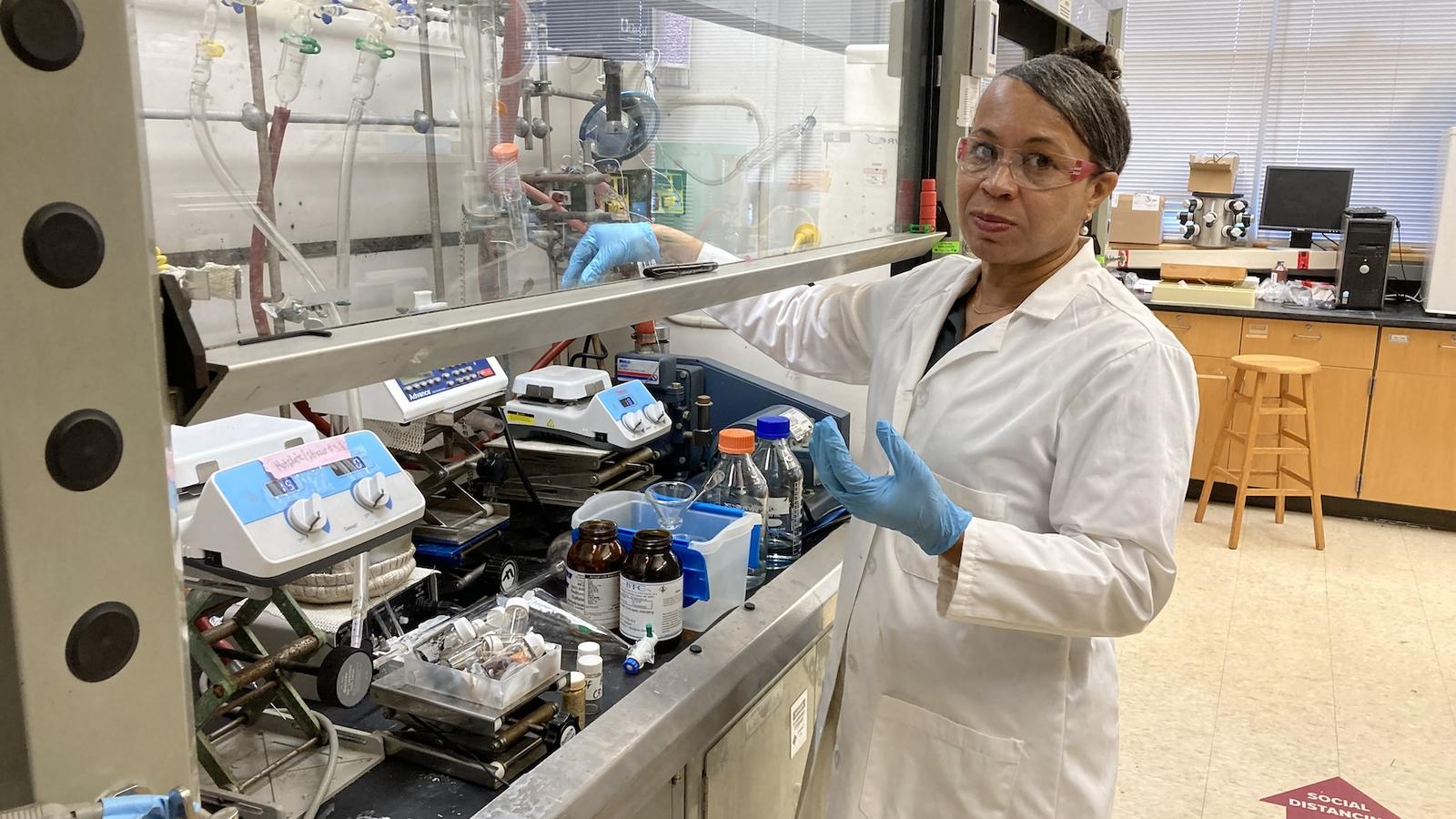Researchers at North Carolina Central University (NCCU) and Duke University are jointly making progress on a new treatment for uterine fibroids.
Fibroids are non-cancerous tumors that are found in the uterus. About 80% of women have fibroids by age 50, although not all women with fibroids have symptoms, said Darlene Taylor, Ph.D., a professor of chemistry and biochemistry at NCCU.
Symptoms can include heavy bleeding, inability to become pregnant, anemia, frequent urination and pain. African American women tend to develop fibroids earlier than Caucasian women and tend to have more and larger fibroids.
“We don’t know why,” Taylor said. “It is not a life-or-death problem. There is not a lot of resources to study or understand it.”
The only guaranteed treatment for fibroids is a hysterectomy, which is the surgical removal of the uterus. A woman who has undergone a hysterectomy can no longer bear children.
Other treatments include nanotechnology particles injected into the arteries, surgically removing the fibroids (laparoscopic myomectomy), injecting a fluid that starves the blood supply to a fibroid (uterine fibroid embolization), using waves (radio frequency ablation) and hormonal treatments.
Taylor and Friederike Jayes, DVM, Ph.D., an assistant professor of obstetrics and gynecology at Duke, are part of a team developing a different approach.
Jayes has developed a procedure and tested a drug that can break down fibroids inside the body.
Meanwhile Taylor has developed a copolymer technology under the trademark name LiquoGel. The LiquoGel mixed with the drug is envisioned to be injected into the patient’s uterus, directly into the fibroid. LiquoGel will enable the drug to stay longer in the fibroid.
“Once it hits body temperature, the LiquoGel turns into a gel that traps the drug molecules and, over time, releases the contents into the fibroid to degrade the collagen (the major constituent of fibroids) and make it easier for the body to get rid of,” Taylor said.
Their joint research was supported with a pilot grant in 2019 aimed at boosting collaborations between Duke and NCCU. In 2021, they received an NC Biotech award of $109,846.
Jayes has an approved protocol in place that allows the team to obtain fibroid tissue from consenting women slated for a hysterectomy.
The two researchers consulted with other professionals in obstetrics, biology, epidemiology and chemistry. They have also performed pilot studies on mice to show their treatment is nontoxic.
More studies on toxicity and synthetic protocol for scale up are needed before taking the results to the Food and Drug Administration for approval.
While the timeline is not guaranteed, Taylor estimates the treatment could be available within five years.
“I think it is a promising treatment for women who don’t want to remove their uterus during childbearing years,” Taylor said.
